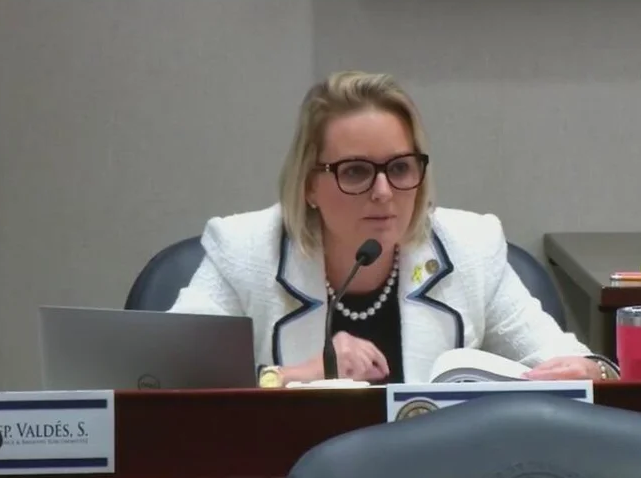Free enterprise is great until your competitors beat you. Dominant competitors may find it advantageous to combine interests to prevent new players from entering markets, destroying profit margins, and taking market share. It is amazing that there has not been more investigation and calls for transparency into the major personal lines insurance companies’ discussions and agreements which may reveal such a conspiracy. While anti-trust exemptions exist for insurance companies regarding sharing of loss data for rate making and other rate or form issues, there are no anti-trust exemptions for agreements that otherwise restrain trade and competition through collusion.
In my recent post, What is State Farm’s Agenda?, I noted one possible reason for State Farm’s announcement that it plans to leave Florida:
State Farm and others in the old guard property insurance oligopoly want to shock the government into implementing a federal catastrophe reinsurance program whereby the old guard oligopoly will not lose business to new start up companies that will compete for their auto business.
One comment to that post referred to Allstate leaving the coastal markets. Another comment by a Slabbed author noted that State Farm and Allstate are having problems with reinsurance catastrophe bond investments, which have lead to significant losses to the surplus of both companies. Given that Allstate and State Farm are underwriting fewer coastal risks where hurricanes hit, I think it is more than happenstance that each share a common political agenda to protect market share losses as they pull away from Coastal America and try to avoid financial losses that occur from hedging the catastrophe risk themselves.
It is obvious that State Farm, Allstate, and Nationwide have agreed to promote a federal agenda to keep their smaller and newer competitors from taking over market share of their cherished automobile and other insurance businesses by lobbying the federal government to enact legislation to indirectly insure property these three companies consider too risky to insure themselves.
One of the insurance industry’s major trade, lobbying and propaganda organizations is the American Insurance Association. It has over 350 insurance companies as members. Conspicuously, State Farm, Allstate, and Nationwide are not members. The American Insurance Association is opposed to federal legislation which creates a federal catastrophe reinsurance plan, while Allstate, State Farm, and Nationwide lobby for such a program. The AIA web site states:
"Among the proposals of some policymakers are federal catastrophe funds (also known as “Cat Funds”). While those mechanisms may offer short-term rate relief, they also promote unwise and unsafe property development, and leave problematic cost-drivers for insurers and policyholders unresolved."
In a press release opposing the Federal Catastrophe Legislation, the AIA states:
"This legislation continues to cause serious concerns for AIA and its more than 350 member companies, who do not want to see Congress go down the road of incenting the creation of more state mechanisms that would interfere with the private market.
While we appreciate the efforts of Congressmen Klein and Mahoney to address homeowners’ insurance issues, the private insurance system continues to be well-positioned to manage natural catastrophe risk, and we believe the best course is to improve, not displace, the private sector’s ability to serve homeowners and businesses that could face losses from natural catastrophes.
We urge Congress to proceed cautiously and deliberately as it takes on homeowners’ insurance challenges, and to look toward durable, long-term, market-oriented solutions."
It is no wonder members of the AIA oppose the legislation. All the legislation does is help State Farm, Allstate, and Nationwide, the major holders of the personal lines market share business, as they try to reduce their risk of exposure to hurricanes. These three competitors want the federal government to protect them from losing profits if they leave the coastal markets. Otherwise, as they leave or write less business, their other competitors will take that business and then start taking other business, such as automobile coverage, from the other lines of insurance they sell.
Propaganda organizations cannot just announce, "We are formed by corporations to help make laws that protect them and make them money at taxpayers, and their competitors, expense." They would not be effective with that truth. Instead, corporations like Allstate and State Farm form propaganda organizations that have great sound bites, which make it appear they exist for the public good rather than private gain.
The propaganda organization formed by Allstate and promoted by State Farm to advocate laws that protect their coastal insurance markets and ancillary lines of insurance business is ProtectingAmerica.org. Essentially, protectingamerica.org promotes protecting the profits of the insurance carriers that have the largest losses along coastal areas. The organization should honestly be called ProtectingBigInsurance.org, but that would not have so much appeal. Honesty is not the best policy when it comes to politics or advance requests for bailouts at taxpayer expense. So, the publicists at Allstate and State Farm have to sell the program in a different light, especially if some dumb consumer advocate were to point out that these two entities were largely responsible for the coastal insurance crisis in the first place.
The best line of insurance to be in is one where you never have a loss. Some may suggest that is not insurance, but think about a system of business that is sold as property insurance, but in the event of a large disaster, the government pays for your losses. That is exactly what State Farm, Allstate, and Nationwide are lobbying for. Protectingamerica.org, a/k/a protectingbiginsurance.org, was formed to make laws which accomplish this very lucrative economic scenario.
This is how it is spun to our elected leaders and the public:
"That bill would create a national catastrophe fund to stand behind privately funded state programs that would provide a financial backstop in the event of a large scale natural catastrophe and, through the state programs, would help fund first responder programs, mitigation efforts and homeowner education programs that are all designed to reduce the loss of life and property resulting from catastrophes."
Nationwide even supports a new business model that eliminates states’ rights to regulate insurance:
"1. A stable and consistent regulatory environment, with a uniform set of rules applied to named wind coverage for coastal zones from Texas to Maine. This portion of the homeowner policy would be regulated by an independent federal body, with the remainder of the policy still regulated by the states.
2. Transparency in calculating insurance premiums, with risk-based, actuarially sound rates using approved standards and wind risk models, and a rating calculation mechanism to be applied if models and actual experience become misaligned over time.
3. Federal reinsurance mechanism for extreme events (such as hurricanes causing losses several times greater than those arising out of Hurricane Katrina), with the reinsurance made available to insurers at cost so there would be no taxpayer subsidy, and the savings passed directly to customers.
4. Encouraging stronger homes through federal guidelines for appropriate building codes and land use planning, with incentives for state and local adoption, plus enhanced construction technology and meaningful premium credits for customers who make their homes less vulnerable to wind damage."
Sounds as good as apple pie. And, since the federal government pays for all this rather than you paying for it today in premiums, who cares? State Farm, Allstate, and Nationwide get certain profits and no new competition. In states like Florida, where these three have largely created the coastal insurance crisis, their problems are solved by the federal government. The rest of the program even funds efforts to mitigate and educate those who are largely the customers of those three carriers. They finally get free from Kevin McCarty and other "unfair" state regulators. There is no discussion about losing any anti-trust exemptions as well.
I wonder if those three companies would support the legislation if they had no economic interest in doing so?
The truth is that they have significant economic incentive to conspire to make these laws or bully states to release them from an economic situation which they no longer wish to be a part of. Remember the childhood friend who took his ball home because he did not like how the outcome of the game was going? These three insurance players are all grown up with significant resources to change the rules of the game whether we like it or not. We better understand how they view the world–they are determined to control it for their financial benefit.
In America, insurance companies cannot be elected to office or even vote. Yet, these corporations can give money to the people running for office and corporations can have people make laws that largely benefit these non-living entities. For those of faith, I wonder what the Almighty will ask us about this system where we allow make believe entities to control so much of the existence provided for us.
Perhaps, the Honorable Howard Baker’s idea about campaign finance should be considered. Baker had the notion that the only entities that could give money to a politician would be ones that could actually vote. Since corporations cannot vote or hold office, why should these paper entities be allowed to contribute? Why are we subordinating our God given inalienable rights to non-living entities for their economic gain?



